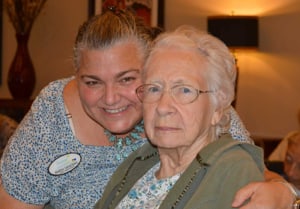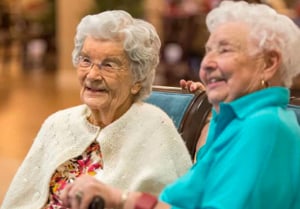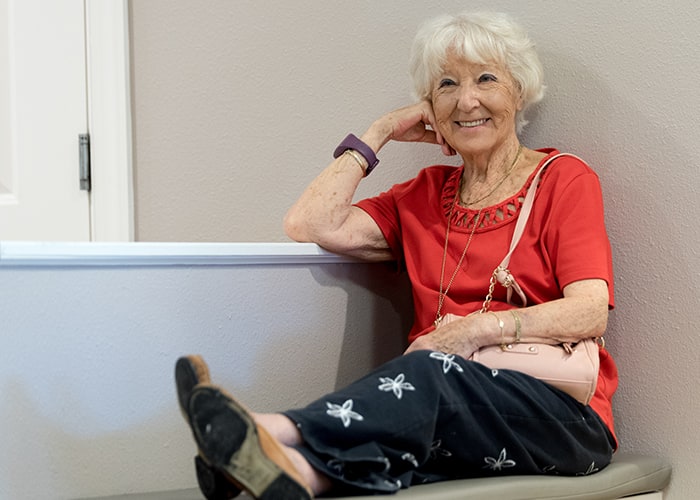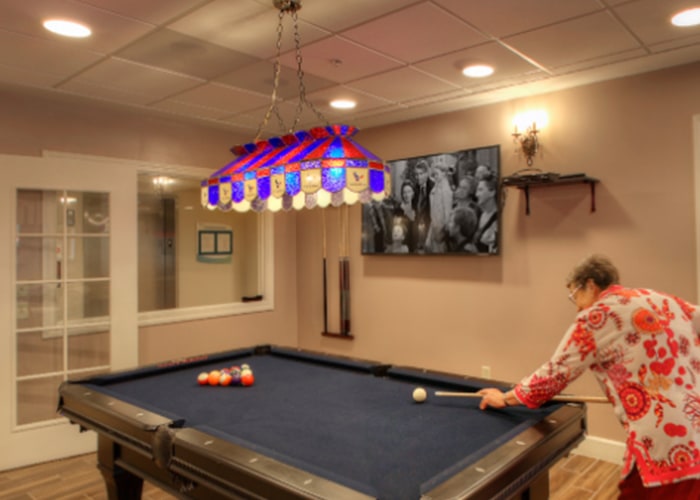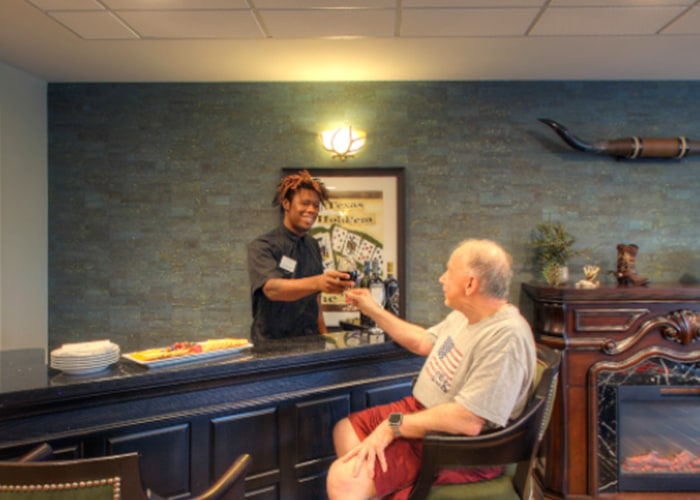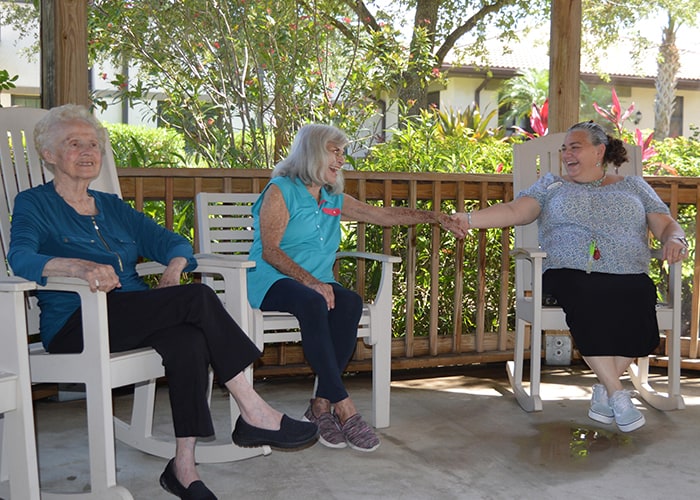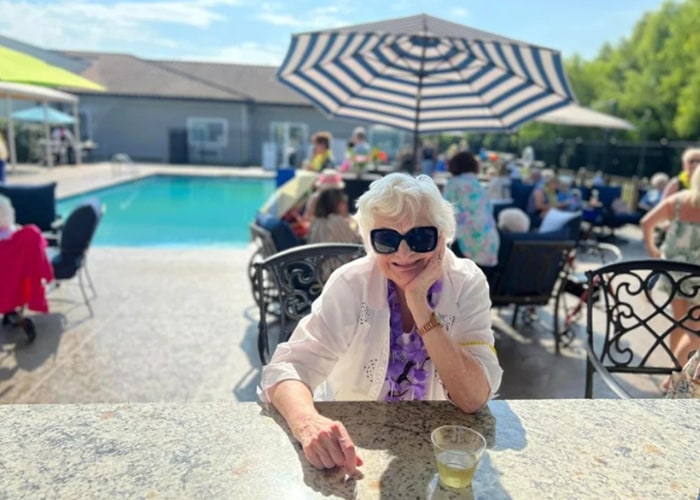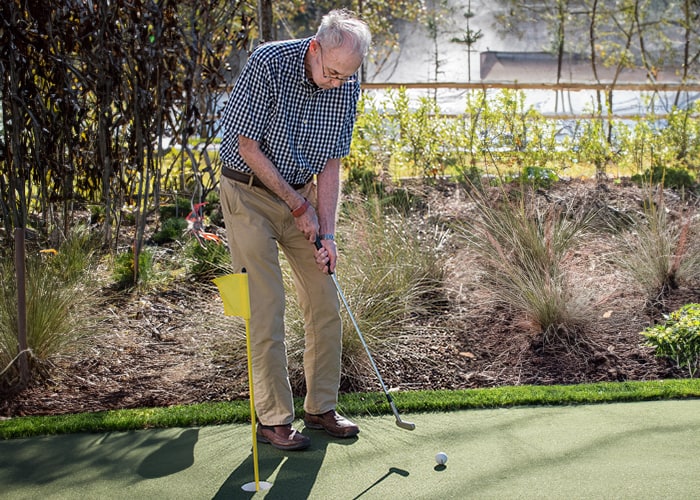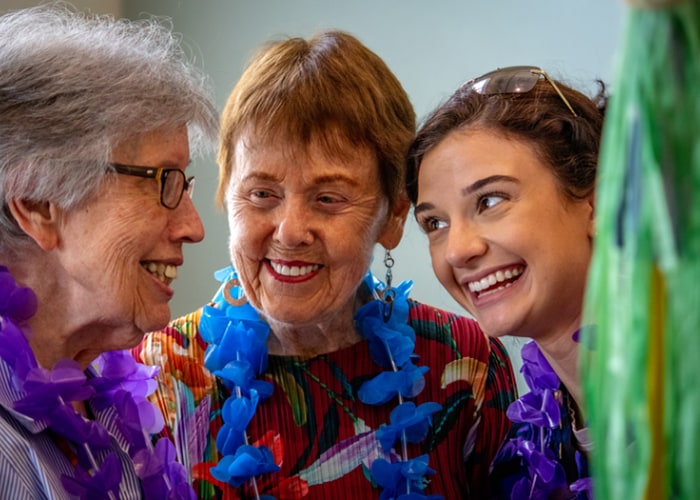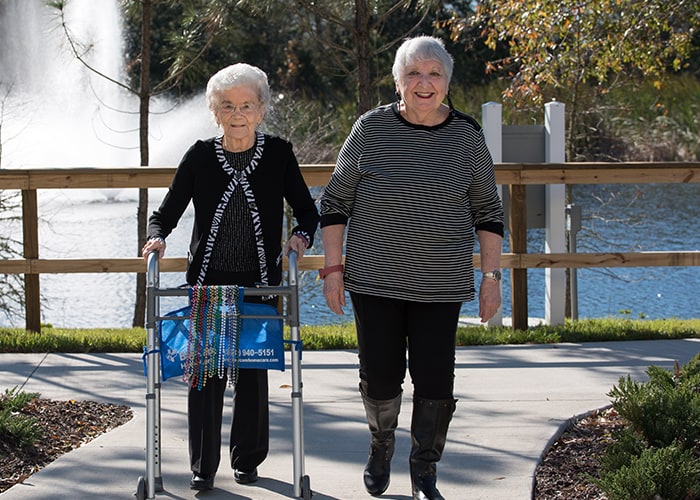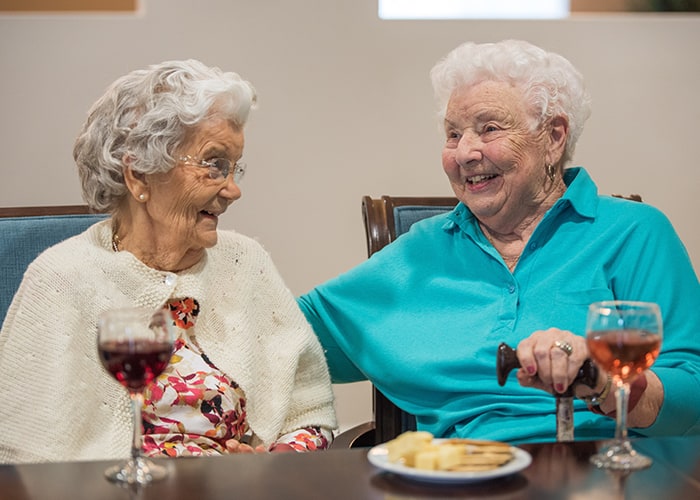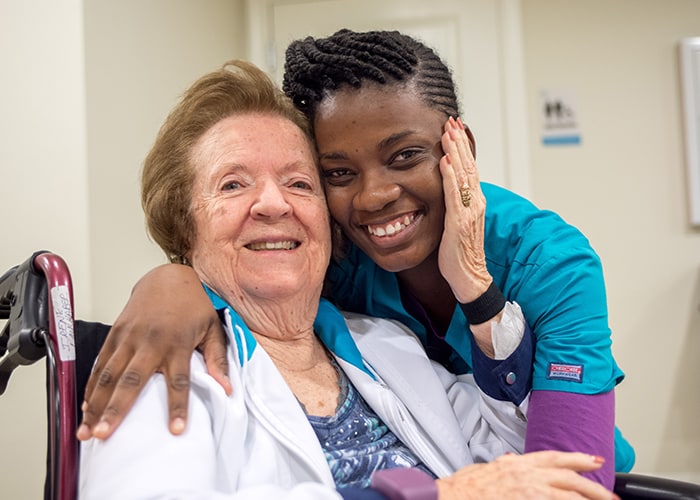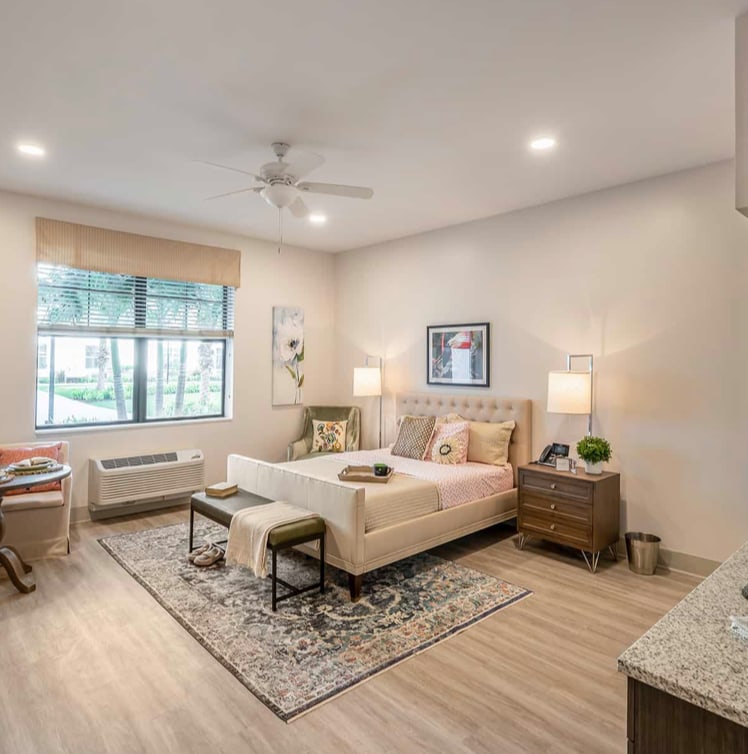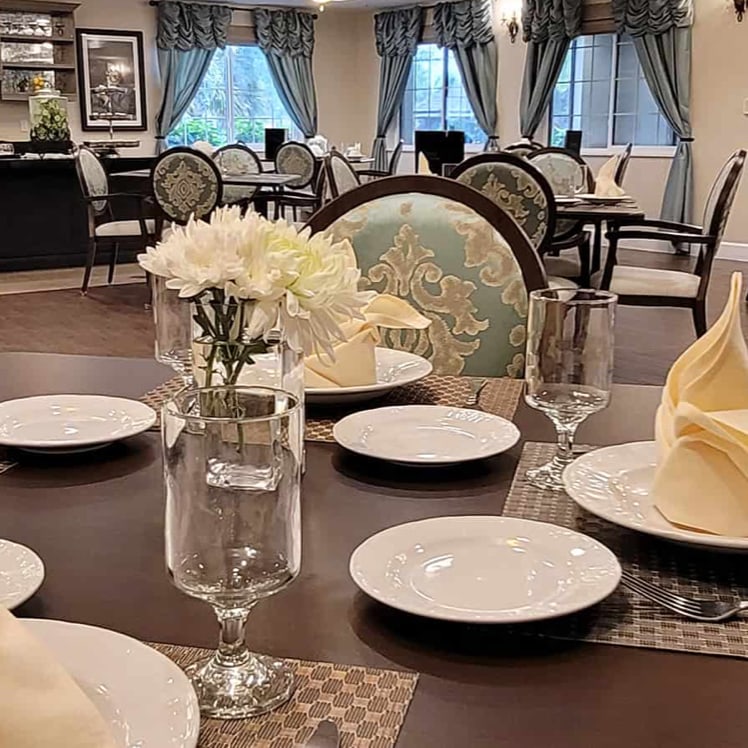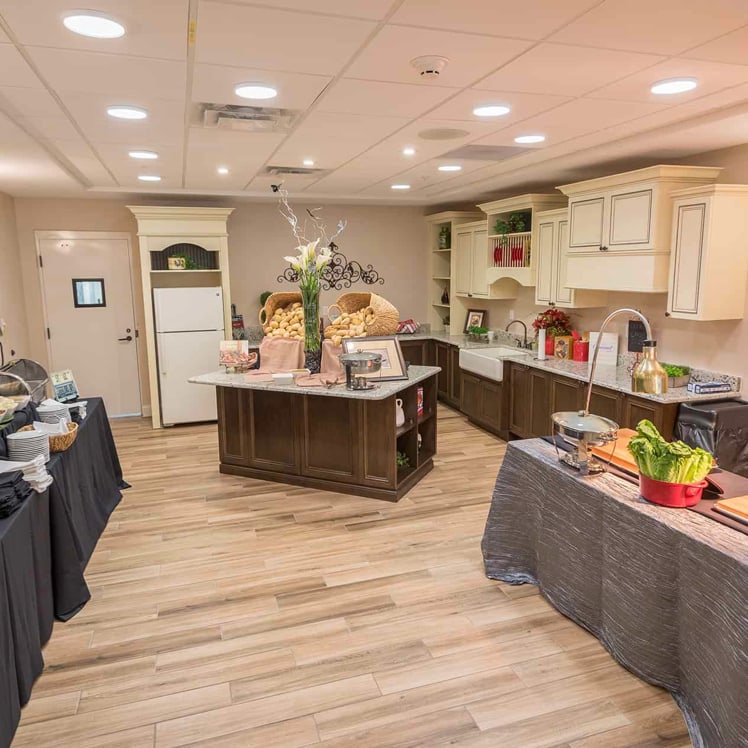Sundown syndrome describes a state of confusion patients with dementia and Alzheimer’s experience during the night. This syndrome can cause feelings of stress in patients with these conditions, and if you’re helping care for someone with dementia or Alzheimer’s, understanding the causes of sundown syndrome and what triggers it in seniors is important.
Providing comprehensive memory care is possible when you understand sundown syndrome and its relationship to dementia and Alzheimer’s. But what is sundown syndrome, what triggers it in seniors, and how can you manage it? Read more to find out!
What is Sundown Syndrome?
Sundown syndrome, also known as sundowning, is not a disease. Rather, it describes a set of symptoms common in individuals with dementia or Alzheimer’s that causes confusion during dusk and nighttime. Symptoms of sundowning include the following:
- Trouble sleeping
- Anxiety
- Shadowing a caregiver
- Hallucinations
- Agitation
- Wandering
- Sadness
- Disorientation
- Pacing
While the precise cause of sundown syndrome is unclear, there are a few triggers that professionals suspect play a role in sundowning. Though the term comes from the state of confusion that mostly occurs around sundown, the symptoms of sundowning can occur at any time during the day.
What Triggers Sundown Syndrome in Seniors?
Providing proper dementia care is possible if you understand the potential triggers causing the symptoms of sundown syndrome to occur for your loved one. Below is a breakdown of some common triggers of sundown syndrome that can make this condition more stressful for patients with dementia or Alzheimer’s.
End-of-Day Activities
One common trigger for sundowning is a flurry of activities occurring toward the end of the day, particularly around sunset. Patients with Alzheimer’s or dementia might struggle if there is sudden commotion toward resting time. For instance, a party or gathering at night can cause extreme confusion for patients experiencing sundown syndrome.
Full Day of Activities
While activities at nighttime are a common trigger of sundown syndrome, exhaustion from a full day of activities is another potential cause of sundowning in seniors. A full day of activities causes severe mental and physical exhaustion in patients with Alzheimer’s, worsening the symptoms of sundown syndrome.
Unfamiliar Environments
Spending the day in a new and confusing environment can worsen the symptoms of sundowning in seniors. These environments can often be overwhelming for patients with dementia or Alzheimer’s, and after spending a day in an unfamiliar place, patients might experience difficulties at nighttime.
Low Lighting
Lighting also plays a role in sundown syndrome and can worsen the associated symptoms. Shadows increase as the sun sets, and for seniors, this can make it more difficult to see at dusk. Even if the senior is in a familiar environment, their surroundings may appear strange and confusing, increasing anxiety and frustration. Low lighting can also exacerbate symptoms of sundowning, like hallucinations, causing ample stress for seniors.
Imbalances to the Internal Clock
Our bodies are guided by an internal clock that lets us know when it’s time to be awake and when it’s time to sleep. An imbalance in this internal clock can worsen the symptoms of sundowning, causing more confusion for seniors. An imbalanced internal body clock might cause seniors to feel tired during the day and awake at night when sundowning symptoms worsen.
Imbalances might occur because of new medications or sleep disorders like insomnia that prevent your loved one from receiving a full night’s rest. This imbalance affects cognition, making it difficult for seniors to function during dusk and nighttime.
Noticing Stress in Others
Part of providing proper Alzheimer’s care is understanding the impact of your stress and agitation on your loved one. If individuals with dementia or Alzheimer’s notice that their caretaker is stressed or frustrated, they may begin to feel anxiety and confusion themselves, worsening the symptoms associated with sundowning. While this can occur at any time during the day, the effects of external stress on seniors are particularly difficult at night.
Sensory Impairments
Seniors with sensory impairments are likelier to suffer from the symptoms of sundowning. For instance, trouble seeing or hearing loss can cause your loved one to feel nervous or startled when they aren’t aware of another person’s presence. As the day goes on and the lighting changes, seniors might feel greater confusion and anxiety about their surroundings.
How to Manage Sundown Syndrome
Providing memory care to your loved one suffering from sundown syndrome is crucial to reducing the anxiety and discomfort this condition causes. The most effective way of managing sundown syndrome is to treat specific triggers causing symptoms to occur. Some options for treating sundown syndrome include the following:
- Keeping strenuous activities reserved during the day and afternoon rather than scheduling things like doctor appointments at night
- Maintaining a regular schedule for waking up, doing activities, and going to sleep
- Controlling noise during the evening and nighttime, such as not having guests over when it’s late or turning down the volume on a television.
- Making slight environmental changes to ensure your loved one has adequate sun during the day and darkness when bedtime arrives
- Monitoring your loved one’s diet to ensure they don’t have too much caffeine, alcohol, or large amounts of sugar, especially late in the day
- Having familiar items for your loved one available in unfamiliar environments
- Identifying activities that are calming for your loved one, such as listening to soothing music
- Limiting daytime naps to promote better sleep at night
- Keeping rooms well-lit before bedtime to reduce shadows and make your loved one feel more comfortable in their environment
Care for Your Loved One With Inspired Living
Understanding the causes of sundown syndrome is only one step to providing proper dementia care for your loved one. If you’re seeking a community that can offer advanced Alzheimer’s care and help your loved one improve their quality of life, Inspired Living has what you need.
Inspired Living provides specialized memory care services to support senior residents and their loved ones during difficult times. With Inspired Living, your loved one can feel fulfilled and motivated to live life to its fullest. Discover more about Alzheimer’s and dementia care from Inspired Living today.




